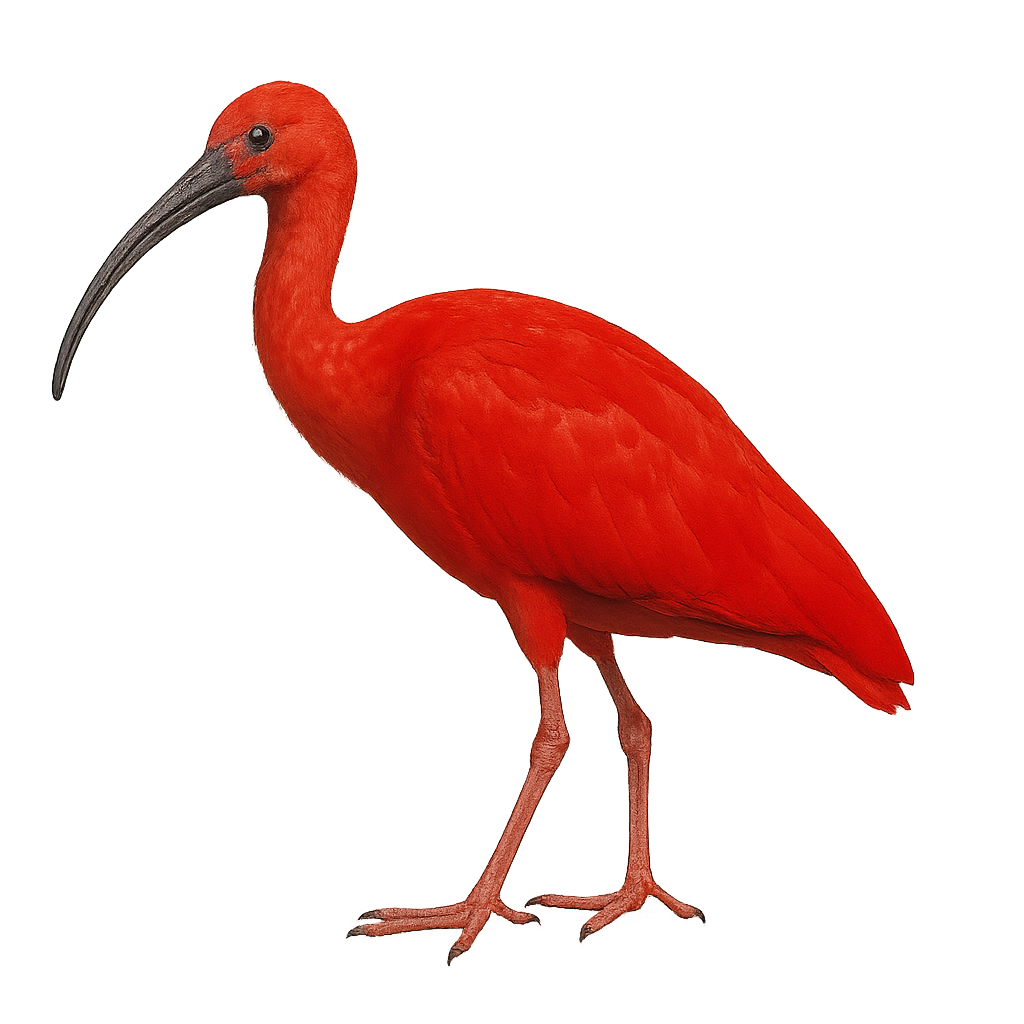Your wildlife photography guide.
Explore the scarlet ibis in detail, study its behavior, prepare your shots.
Where to observe and photograph the scarlet ibis in the wild
Learn where and when to spot the scarlet ibis in the wild, how to identify the species based on distinctive features, and what natural environments it inhabits. The WildlifePhotographer app offers tailored photography tips that reflect the scarlet ibis’s behavior, helping you capture better wildlife images. Explore the full species profile for key information including description, habitat, active periods, and approach techniques.
Scarlet ibis
Scientific name: Eudocimus ruber

IUCN Status: Not Threatened
Family: THRESKIORNITHIDAE
Group: Birds
Sensitivity to human approach: Suspicious
Minimum approach distance: 5 m
Courtship display: March to May
Incubation: 19–23 jours
Hatchings: April to June
Habitat:
Swamps, mangroves, coastal areas
Activity period :
Primarily active during the day, with peak activity in the morning and late afternoon.
Identification and description:
Native to coastal regions of South America and the Caribbean, the scarlet ibis is a bird recognizable by its bright red plumage. It primarily lives in wetlands and mangroves, feeding mainly on small fish, crustaceans, and invertebrates. This migratory bird is often seen in groups, where its bright colors create impressive visual displays. While the scarlet ibis is not threatened, habitat destruction poses a risk to its population.
Recommended lens:
300 mm – adjust based on distance, desired framing (portrait or habitat), and approach conditions.
Photography tips:
Photograph the scarlet ibis using a telephoto lens to capture its vibrant color and behavior in its natural habitat. It is best to photograph early in the morning or late in the afternoon, when the light is soft and the bird is more active. Be discreet, as these migratory birds can be easily startled by a human presence too close.
From knowledge to field practice
A species profile helps you understand an animal. In the field, the challenge is often different. Remembering your own observations.
The WildlifePhotographer app allows you to:
• record your personal observations
• note locations, dates, and behaviors
• revisit your field references over time
• build a private and long-term field logbook
The app does not provide observation locations.
It helps you organize what you actually observe, with respect for wildlife.

